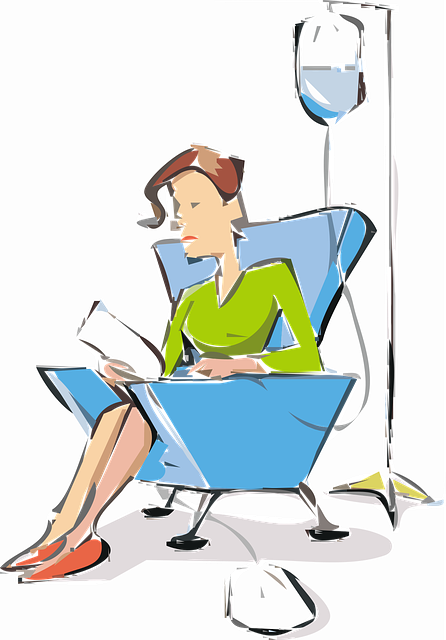The Best Hangover Supportive Therapy: Effective Solutions to Recover
Tennessee Behavioral Health
Understanding Hangovers
What is a Hangover?
A hangover is a collection of physical and mental symptoms that manifest after drinking alcohol, typically the morning following a night of heavy drinking. Also known as an alcohol hangover or veisalgia, it can range in severity and duration, often leaving individuals feeling uncomfortable and debilitated.
When you drink alcohol, it is absorbed into your bloodstream and distributed throughout your body. As your body processes the alcohol, it reacts to its toxic effects, leading to a variety of symptoms. These include dehydration, electrolyte imbalances, and inflammation, all of which contribute to the overall experience of a hangover. Understanding these reactions can help in managing and mitigating the impact of a hangover.

Hangover Symptoms
Hangover symptoms can vary widely from person to person, but some common symptoms include:
Headache: One of the most prevalent hangover symptoms, headaches are often caused by dehydration and the dilation of blood vessels in the brain.
Fatigue: Feeling tired, sluggish, and lacking energy is common, resulting from the body’s depletion of energy stores and disrupted sleep patterns.
Nausea and Vomiting: Many people experience nausea and vomiting during a hangover, due to the irritation of the stomach lining and disrupted digestive processes.
Dizziness and Lightheadedness: Dehydration and the dilation of blood vessels can lead to feelings of dizziness and lightheadedness.
Sensitivity to Light and Sound: Some individuals may find themselves unusually sensitive to light and sound, a result of inflammation in the brain and nervous system.
Mood Changes: Hangovers can cause a range of mood changes, including irritability, anxiety, and depression, due to the disruption of neurotransmitters and hormones.
Physical Symptoms: Additional physical symptoms can include muscle pain, joint pain, and tremors, stemming from the body’s inflammation and dehydration.
In some cases, individuals may experience more severe hangover symptoms, such as intense emotions, stomach pain, and difficulty concentrating. These could indicate a more serious underlying condition, such as alcohol use disorder. If you experience severe or persistent hangover symptoms, it’s important to seek medical attention from a mental health professional to rule out any serious health issues.
What Causes Hangover Symptoms?
Hangovers occur due to the body’s reaction to drinking alcohol, involving dehydration, inflammation, and fluctuations in blood sugar levels. Toxic byproducts of alcohol metabolism also contribute to hangover symptoms. Factors like the amount and type of alcoholic beverages consumed, as well as individual tolerance, influence the severity of symptoms. By understanding these causes, individuals can take proactive steps to prevent or alleviate hangover symptoms.

The Effects of Drinking Alcohol
How Alcohol Consumption Affects the Body
Alcohol impacts the body in multiple ways:
Dehydration: Alcohol is a diuretic, leading to fluid loss and symptoms like dry mouth and fatigue.
Digestive System: It irritates the stomach lining, causing nausea and discomfort.
Blood Sugar Levels: Heavy alcohol consumption can lower blood sugar, contributing to weakness and mood swings.
Immune System: Alcohol can weaken the immune system, making the body more susceptible to infections.
Excessive alcohol consumption or alcohol abuse can exacerbate these effects, leading to severe hangover symptoms and long-term health risks.
Hangover Supportive Therapy
What is Hangover Supportive Therapy?
Hangover supportive therapy consists of treatments and remedies that help alleviate hangover symptoms and support recovery. This includes:
IV Therapy: A direct infusion of fluids, electrolytes, and essential nutrients to rehydrate the body.
Natural Products and Alternative Methods: Acupuncture, meditation, and supplements like vitamin C or red ginseng to ease symptoms and promote relaxation.
Electrolyte Drinks: Help replenish lost minerals and fluids.
The goal is to reduce hangover severity and improve overall well-being.
IV Therapy for Hangovers

Tennessee Behavioral Health
How IV Therapy Can Help
IV hydration therapy is an effective way to counter the effects of alcohol-induced hangover symptomatology. Benefits include:
Rehydration: IV drips replenish fluids and combat electrolyte imbalance.
Nutrient Restoration: Essential vitamins and amino acids support energy levels and recovery.
Symptom Relief: IV therapy helps alleviate headaches, nausea, and fatigue commonly associated with hangovers.
Many turn to IV therapy for rapid hydration and symptom relief after a long night of drinking.
Alternative Methods and Natural Products
Exploring Other Options for Hangover Relief
Natural and alternative remedies can complement traditional hangover cures:
Acupuncture and Meditation: Promote relaxation and balance the nervous system.
Korean Pear Juice and Herbal Supplements: Studies suggest these can reduce hangover symptoms like pounding headaches.
Bland Foods and Sports Drinks: Help settle the stomach and prevent dehydration.
Integrating these methods into hangover supportive therapy can provide well-rounded relief.
Preventing Hangovers
Tips for Responsible Drinking
Prevention is the best cure. Consider these tips:
Drink in Moderation: Avoid heavy alcohol consumption to minimize risks.
Stay Hydrated: Alternate alcoholic beverages with water or electrolyte drinks.
Eat Before Drinking: A meal helps slow the absorption of alcohol.
These strategies not only reduce hangover severity but also protect overall health.
Safety and Effectiveness
Is Hangover Supportive Therapy Safe?
When administered correctly, hangover supportive therapy, particularly IV therapy, is safe and effective. Consulting a medical professional ensures the best approach, tailored to individual needs and medical history. Addressing hangovers responsibly can prevent potential complications, such as liver damage or worsening symptoms.
Choosing the Right Treatment
Finding the Best Hangover Supportive Therapy for You
Selecting the right hangover remedy depends on your needs, lifestyle, and preferences. Factors to consider include:
Effectiveness: How quickly the method alleviates symptoms.
Convenience: Accessibility of treatment options, such as mobile IV services.
Cost: Budget-friendly solutions like natural products or at-home remedies.
Consulting healthcare providers can help you make informed decisions.
Conclusion
Tennessee Behavioral Health
Taking Control of Your Hangover Recovery
Recovering from a hangover involves understanding its causes and exploring effective solutions. From IV therapy to alternative methods, hangover supportive therapy offers a comprehensive approach to relief. By taking control of their recovery, individuals can alleviate hangover symptoms, improve their well-being, and make healthier choices in the future.




